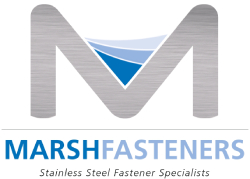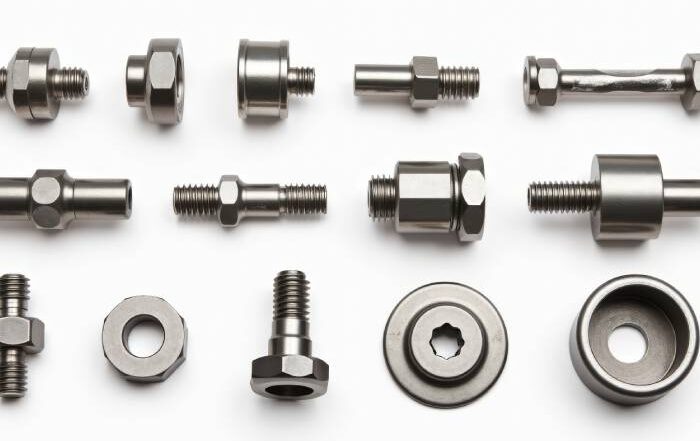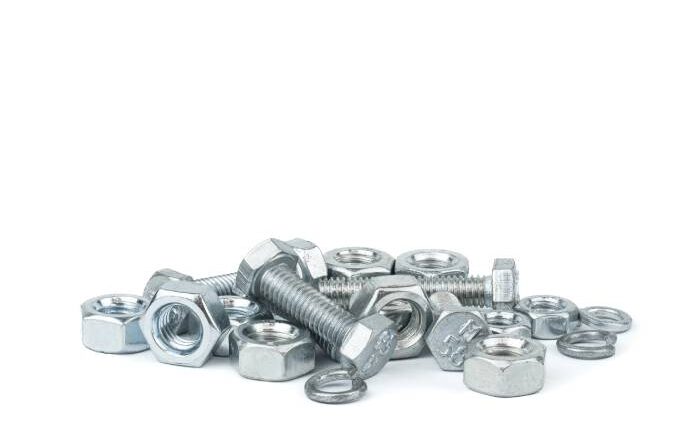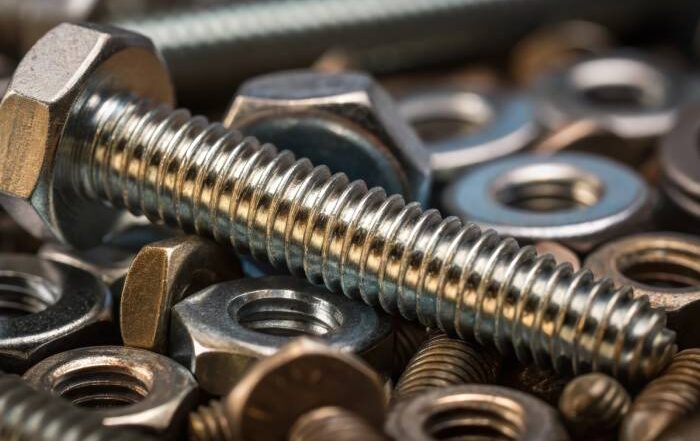
Not all screws are made the equal. Different sizes, threads, metals and grades are complimented sophisticated designs that create enhance action – ideal for hard metal substrates and plastics that would otherwise need a hole cut in them first to take the screw.
Manufactured with a variety of thread-cuts and heads, depending on what they are needed for, they are far more efficient than ordinary screws for precision fastening with substrates that might otherwise break a drill bit or crack in the drilling process.
Self-tapping screws
The baseline capability of the self-tapping screw is its enhanced penetrating capability, thanks to the ‘tapping’ action created by cuts in the screw threads to create a ‘twin-lead’ thread. Many self-tapping screws are also self-drilling, and apart from blunt-edged self-drilling screws used for closely fitted substrates, all self-tapping screws have sharp points to help them penetrate the metal or plastic.
Self-drilling screws
Self-drilling screws have an additional flute in the leading threads in addition to the cut, so while they are also self-tapping, they flute at the tip that provides a drill action to combine with the tap action. This increases the efficiency of the screw and its ability to penetrate harder substrates than those for which an ordinary self-tapping screw would be suitable.
Some self-drilling screws have blunt tips – ideal for when they need to be put through a substrate that positioned very close to another one, without damaging the neighbouring substrate.
Self-piercing screws
Also called ‘ZIP’ screws, needlepoint screws, speed, ‘saber’ or twin-fast screws, self-piercing screws have extra sharp tips that can penetrate even the thickest sheet metal. Designed for fastening the hardest substances and the most precise applications, stainless steel Zip screws come in with a huge variety of lengths and thicknesses to meet the needs of any industry.
Detailed Applications of Each Screw Type
Below, we discuss detailed applications of each screw type:
Self-Tapping Screws:
Self-tapping screws are versatile fasteners that are used across a range of industries. They’re particularly effective for HVAC installations, where they secure ductwork and other components without the need for pre-drilling holes. In the automotive industry, self-tapping screws are used in bodywork and interior trim, providing efficient fastening without the risk of material damage. These screws are also commonly found in electronics casings and furniture assembly, making them ideal for products that require lightweight yet secure attachment in materials such as aluminum, brass, plastics, and fiberglass.
Self-Drilling Screws:
With their integrated flute, self-drilling screws are the go-to solution for construction and roofing applications. They are widely used in structural framing and metal cladding, securing elements like metal decking and insulation panels with ease. These screws eliminate the need for pre-drilling holes, which significantly reduces labor costs and time on site. Their ability to drill and tap simultaneously makes them the preferred choice for steel frameworks, particularly in industrial and commercial buildings where speed and efficiency are critical.
Self-Piercing Screws (ZIP Screws):
Self-piercing screws, also known as ZIP screws, are used in highly specialized applications. Their sharp tips make them ideal for precision engineering tasks, particularly in industries like telecommunications, electrical installations, and HVAC ducting. These screws are perfect for fastening both thin and thick sheet metals, as they can pierce the material without the need for a pilot hole. In industries such as automotive assembly and sheet metal fabrication, ZIP screws provide the reliability and precision required in fast-paced, high-stakes environments.
Advantages of Using Stainless Steel Screws
Stainless steel screws offer several advantages, especially in environments where corrosion resistance and durability are paramount. These screws are highly resistant to rust and corrosion, making them ideal for applications in marine environments, food processing plants, and outdoor equipment installations. Stainless steel fasteners maintain their strength and structural integrity even in harsh conditions, extending the life of your projects and reducing maintenance needs. In addition to their resilience against chemicals, moisture, and extreme temperatures, stainless steel screws also offer superior performance in extreme weather conditions and are less prone to premature wear, resulting in cost savings over the long term.
Common Mistakes and How to Avoid Them
Several common mistakes can occur when choosing or using screws, but they are easily preventable with proper knowledge and preparation.
Incorrect Screw Type or Size:
Choosing the wrong screw type or size can result in weak fastening, material damage, or corrosion. To avoid this, always ensure that the screw’s size and type are matched precisely to the substrate material and thickness.
Excessive Torque Application:
Applying too much torque can strip the screw threads, crack the substrate, or damage the screw head. Always adhere to the manufacturer’s torque recommendations and use appropriate power tools to avoid over-tightening.
Misalignment During Installation:
Misalignment can lead to inefficient fastening and structural weaknesses. To prevent this, use a guide tool or template to ensure screws are driven in at the correct angle, and make sure the workpiece is properly secured.
Comparison Table for Quick Reference
| Screw Type | Features | Ideal For | Advantages | Limitations |
| Self-Tapping | Thread-cutting action | Plastics, soft metals | No pilot hole required | Hard substrates can be difficult |
| Self-Drilling | Fluted drill tip | Structural steel, construction | High-speed installation | Limited use in thin metals |
| Self-Piercing | Needle-sharp tip | Precision fastening, sheet metal | Precise penetration | Not suitable for thick structural materials |
Tips for Choosing the Right Screw
When selecting screws for your project, consider the following tips to ensure you choose the best fastener for the job:
- Substrate Material & Thickness: Always match the screw type and size to the material and thickness of the surface you’re fastening.
- Environmental Conditions: Choose stainless steel screws for moisture-prone environments or those exposed to corrosive chemicals.
- Load-Bearing Requirements: Ensure the screw type you choose can withstand the load and structural demands of your project.
- Torque Settings: Always check technical specifications to ensure you’re using the correct torque settings for optimal performance.
Environmental and Cost Considerations
Choosing the right screw type can provide both environmental benefits and cost savings. By opting for self-drilling or self-piercing screws, you can reduce labor time, eliminate the need for pilot holes, and speed up installation, which cuts overall project costs. Additionally, stainless steel screws tend to have longer lifespans, meaning fewer replacements and reduced material waste. This contributes to sustainability by lowering energy consumption and reducing the frequency of replacements, ultimately benefiting both your budget and the environment.
Safety Considerations and Best Practices
When working with screws and power tools, safety should always be a priority:
- Wear Safety Glasses & Protective Gloves: Always protect your eyes and hands from potential debris or injury during installation.
- Secure the Workpiece: Ensure the workpiece is firmly clamped in place to prevent it from slipping and causing injury.
- Inspect Tools and Screws Regularly: Check for wear or damage to your screws and tools before starting each project to ensure optimal performance and safety.
By following these best practices, you can ensure that your projects run smoothly, safely, and efficiently, delivering durable and reliable results every time. Shop now for the best solutions in the industry.
Get in touch with us at Marsh Fasteners. As a leading stainless steel fastener specialist and partnered with manufacturers and suppliers of the full range self-tapping screws and the highest grade stainless steel self-piercing screws, we can make choosing the right fasteners easy.



